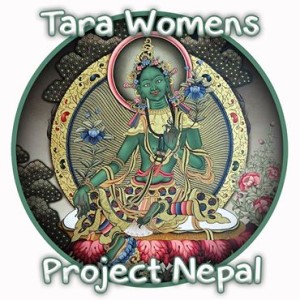‘Unclean’ and ‘impure’ – you are forbidden to cook, attend school, tend the animals or worship in the temple.
South Lancashire’s Soroptimists learned about the lifestyle facing thousands of menstruating girls and women in rural Nepal. The guest speaker at the Region’s Programme Action meeting was Jenni Pizer, founder of the Tara Women’s Project.
Consider – you are segregated from the family, made to live in an outside shed with others who are menstruating, and barred from touching anything for fear you will contaminate it and render it useless. That is the norm in villages where ‘Chhaupadi’ prevails.
You will have no idea why you are bleeding – you have no safe, hygienic sanitary protection and will resort to newspaper, corn husks or old cloths. You are at risk of infection. You are ashamed.
The Tara Project addresses this through education – the what? and why? of puberty, menstruation and hygiene – and by enabling local women to make their own reusable sanitary protection.
The menstruation kits, provided free in brightly-coloured bags, include 12 liners and two shields. Everything (except the poppers on the shields!) is sourced locally; the project has also funded training in sewing for two local women.
Networking in the two Nepali villages served by this project is essential. Since the start in 2015 headteachers, community leaders and midwives have supported and promoted its message. Girls’ attendance at school is improving; ‘pods’ (shields and liners) are now offered to schools to keep for students whose periods catch them out.
Sriya Kulupana, SI South Lancashire’s Programme Officer, said: “This carefully thought out project offers life-saving education and improvements in women’s personal health and hygiene.
“It may only be a small-scale operation but, with over 2,000 kits distributed since 2015, it has made a massive impact on these two Nepali communities.”

